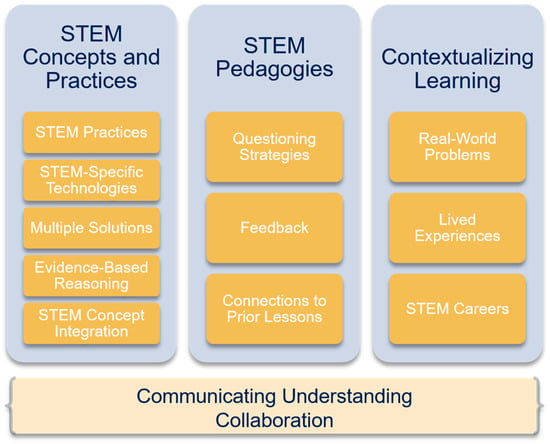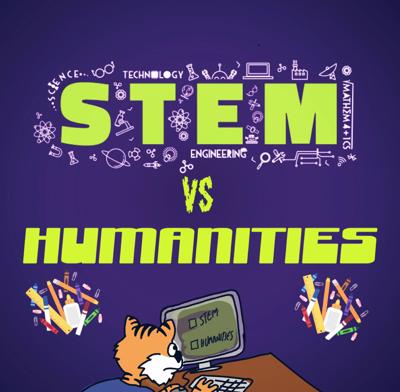Introduction
Start with an engaging introduction that highlights the ongoinAdd New Postg debate between STEM (Science, Technology, Engineering, and Mathematics) and humanities majors.
- Discuss the perceived dichotomy between these fields.
- Introduce the significance of choosing a major and its impact on career paths.
Understanding STEM and Humanities
- Define and describe what STEM and humanities encompass.
- Highlight the core disciplines within each field.
- Emphasize the distinct skills and approaches fostered by each area of study.

Perceptions and Misconceptions
- Address common perceptions and misconceptions about STEM and humanities majors.
- Discuss stereotypes, career prospects, and societal attitudes associated with each field.
Advantages of STEM Majors
- Discuss the strengths and advantages of pursuing a STEM major.
- Highlight career opportunities, salary potential, innovation, and technological advancements in STEM fields.
- Discuss interdisciplinary aspects and the impact of STEM on various industries.
Advantages of Humanities Majors
- Highlight the unique benefits of studying humanities.
- Discuss critical thinking, communication skills, cultural understanding, and creativity nurtured by humanities education.
- Showcase career pathways for humanities graduates in fields like education, writing, public service, and more.
Overlapping Skills and Interdisciplinary Opportunities
- Explore the intersections between STEM and humanities fields.
- Discuss how combining skills from both areas can lead to innovative career paths.
- Highlight examples where interdisciplinary knowledge is valued.
Personal Fit and Career Aspirations
- Emphasize the importance of personal interests, strengths, and career goals in choosing a major.
- Discuss the significance of aligning one’s passion with a chosen field of study.
Future Trends and Industry Demands
- Discuss emerging trends in both STEM and humanities fields.
- Highlight how changing landscapes and technological advancements affect career opportunities.

Making an Informed Decision
- Provide guidance for students in making a well-informed decision about their major.
- Suggest ways to explore both fields before making a choice.
- Encourage seeking mentorship and advice from professionals in both STEM and humanities fields.
Conclusion
- Summarize key points discussed about STEM and humanities majors and career paths.
- Encourage readers to consider their interests, strengths, and aspirations while making their educational and career choices.
Remember to include relevant statistics, quotes from professionals or academics, and real-life examples to support your points and provide a well-rounded perspective on the topic.
STEM vs. Humanities: Navigating the Choice of Major and Career Paths
Choosing a college major is a pivotal decision that can significantly impact one’s academic journey and future career prospects. Two broad categories often dominate these decisions: STEM (Science, Technology, Engineering, and Mathematics) and Humanities. While both offer unique opportunities and challenges, navigating the choice between STEM and Humanities requires a careful consideration of personal interests, skills, and long-term goals.
The STEM Advantage
STEM fields are often lauded for their practicality and direct application to real-world problem-solving. The demand for STEM professionals continues to rise in today’s technology-driven world. Majors such as computer science, engineering, and biology promise lucrative career paths and opportunities for innovation.
1. Job Prospects and Salaries
One of the key advantages of STEM majors is the promising job market. Graduates in STEM fields often find themselves in high demand, with a wide array of job opportunities across various industries. Additionally, STEM careers are known for offering competitive salaries, reflecting the demand for specialized skills.
2. Innovation and Technological Advancements
STEM disciplines drive innovation and technological advancements. Those pursuing STEM majors actively contribute to the development of new technologies, medicines, and engineering solutions. The allure of being at the forefront of progress attracts many students to STEM fields.
3. Problem-Solving Skills
STEM education emphasizes critical thinking and problem-solving skills. Students in these majors learn how to analyze complex issues, design experiments, and develop solutions. These skills are not only beneficial in a professional setting but also transferable to various life situations.
The Appeal of Humanities
On the flip side, Humanities majors provide a different set of skills and insights that are equally valuable in the workforce. Humanities encompass a broad range of disciplines, including literature, philosophy, history, and the arts, fostering creativity, critical thinking, and effective communication.

1. Critical Thinking and Communication Skills
Humanities majors cultivate critical thinking and communication skills. The ability to analyze information, think critically about various perspectives, and articulate ideas coherently are essential in many professional settings.
2. Diverse Career Paths
Humanities majors open doors to diverse career paths. Graduates can pursue careers in writing, journalism, education, public relations, and cultural institutions. The versatility of a Humanities degree allows individuals to explore different fields and adapt to evolving job markets.
3. Social and Cultural Awareness
Humanities majors often explore the complexities of human experience, fostering social and cultural awareness. This understanding of diverse perspectives is increasingly valued in a globalized world and can contribute to building inclusive and empathetic communities.
Navigating the Decision-Making Process
Choosing between STEM and Humanities involves a careful evaluation of personal interests, skills, and long-term goals. Here are some factors to consider:
1. Passion and Interest
Consider what truly excites and motivates you. If you have a passion for solving scientific problems or designing technology, a STEM major might be a natural fit. On the other hand, if you are captivated by literature, philosophy, or the intricacies of human behavior, Humanities might align better with your interests.
2. Skills Assessment
Evaluate your strengths and weaknesses. STEM majors often require strong quantitative and analytical skills, while Humanities majors demand effective communication and critical thinking. Recognizing your natural abilities can guide you toward a major that complements your skill set.
3. Long-Term Goals
Think about your long-term career goals. Consider the types of work environments, projects, and industries that align with your aspirations. STEM majors may lead to roles in research, technology, or engineering, while Humanities majors could pave the way for careers in writing, education, or cultural advocacy.
4. Flexibility and Interdisciplinary Options
Recognize that the boundaries between STEM and Humanities are not rigid. Many interdisciplinary fields combine elements of both, providing opportunities for individuals with diverse interests. Explore majors that bridge the gap, such as environmental science, bioethics, or science communication.
Overcoming Stereotypes and Misconceptions
Both STEM and Humanities have faced stereotypes and misconceptions. It’s essential to challenge these assumptions and recognize the value each brings to individuals and society. STEM professionals can benefit from enhanced communication skills, while Humanities majors can leverage technology to amplify their impact.
Conclusion
In the complex landscape of choosing a major and career path, the STEM vs. Humanities decision is not about determining a superior option but finding the best fit for individual strengths, interests, and goals. Whether you choose the analytical precision of STEM or the expansive creativity of Humanities, each path offers unique opportunities for personal and professional growth. Ultimately, success lies in aligning your academic and career choices with your passion and values, creating a fulfilling and meaningful journey.
